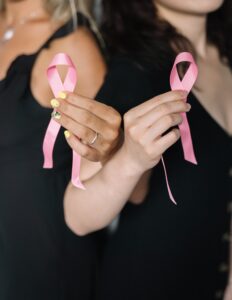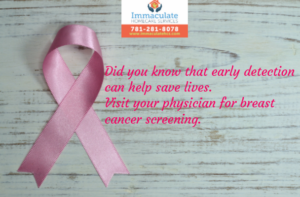Breast cancer awareness has significantly shaped how individual’s perspective on understanding the nature and cause of the disease. Often linked to women, men can also get breast cancer. October is the Breast Cancer Awareness Month, and this year’s theme is focused on the importance of early detection. When breast cancer is detected in its earliest stages, it is easy to treat, manage, and save lives.

Pexels
To detect breast cancer early means that you should:
- Find out your family history- You need to talk with your parents or relatives about any breast cancer cases in the family. Through genetic testing, you will be able to get to know whether you carry the cancer gene if there has been a history of breast cancer in the family. With your doctor’s guidance, you can arrive at the safest option that will prevent the development of cancer.
- Get yearly examinations- As you attend your yearly medical examination, you can request a breast cancer examination from the attending physician. Regular examinations keep you informed on your health status and, most importantly, any abnormal or unexpected growth. If your local hospital is raising awareness this month by offering free examinations, take advantage of the opportunity.
- Conduct personal breast examinations- Not sure how to get about this personal breast test? Check out this simple guide by breastcancer.org. During this test, you are supposed to assess two key aspects, the size, shape, and color of your breasts and any visible swelling or distortion. If you notice anything out of the normal, like a bulge on the skin, change in nipple position or swelling, soreness, or a rush, visit your doctor.
Preventing any form of cancer should be everyone’s personal health goal. The Mayo Clinic states that breast cancer cases are linked to our lifestyle, hormonal and environmental factors, with 5% to 10% of the cases linked to genetic mutations passed through generations. Here are some suggestions you can include in your health and daily routine to lower your risk of breast cancer.
Limit or Avoiding Alcohol and Smoking
The more the alcohol you consume, the higher the risk of developing breast cancer. Individuals need to reduce the frequency and the quantity of alcohol they consume to keep breast cancer at bay. Smoking has been linked to a higher breast cancer risk, especially among premenopausal women. Not only does it damage the lungs, teeth, and accelerate the aging process, smoking is one of the leading causes of death for lung cancer patients.
Maintain a Healthy Body Weight
Overweight individuals increase their risk of breast cancer, especially after they have been through menopause. Therefore, it is necessary to maintain healthy body weight by eating the recommended food portions and remaining within the caloric needs of our bodies.
Be Physically Active and Eat A Balanced Diet
Physical activity can help you maintain healthy body weight as it helps prevent breast cancer. Simple activities such as taking a walk to the park to aerobics at the gym can significantly lower your breast cancer risk.
Limit the Duration and Dose of Hormone Therapy
Hormone therapy for a prolonged time could increase your risk of breast cancer. For those taking hormone therapy for menopause, you can always ask your physician for other options such as a lower dose or short-term hormone therapies that will have lower risks.
Avoid Radiation Exposure and Polluted Environments
Some medical imaging procedures, like computerized tomography, rely on high radiation doses. This kind of radiation can lead to cancer cells’ growth, especially if exposed to it for a long period. Polluted environments have harmful chemicals that could trigger breast cancer cells, if at a higher risk, avoid such environments.
Breastfeeding
The Mayo Clinic explains that breastfeeding could play a role in preventing breast cancer. Therefore, women need to breastfeed longer as it offers greater protection and prevents cancer.
The fight against breast cancer is far from over, and even as we raise awareness this month, this should be an all year fight towards a breast cancer-free society.
#FightBreastCancer

Pexels


